Début 2024, La Face B a rencontré Patrice au Rocher de Palmer pour une interview aussi engagée que passionnante sur la musique, l’environnement et l’essence d’être artiste. Nous avons découvert une personne imprégnée de philosophie et de sagesse, avec une passion pour la musique intacte depuis 1998. Pour 2024, Patrice prévoit une année productive entre tournées, studio et projets de production d’artistes émergents. En perpétuel mouvement et évolution, Patrice ne s’arrête jamais ou presque.

« La première chanson de mon nouvel album s’appelle « Become who you are » et cela résume tout pour moi. L’évolution consiste à essayer de devenir qui tu es à tout moment. Ce n’est pas quelque chose que tu peux définir mais c’est un processus. Et un processus qui ne finit jamais. » Patrice
Retrouvez également le travail d‘Alexia Arrizabalaga-Burns (sous le pseudo Troubleshooteur) sur son site et sur Instagram
La Face B: Bonjour Patrice, tu es au tout début de ta tournée française. Vous avez 8 jours avec des concerts à Bordeaux, Bayonne, Toulouse et Limoges. As tu une relation spéciale avec la France ?
Patrice: Oui, absolument. J’ai fait trois tournées l’année dernière. Je suis apparemment numéro 5 des artistes les plus en tournée en France. Quelqu’un m’a envoyé la capture d’écran, je ne le savais pas.
La Face B: C’est une preuve.
Patrice: Oui, et cette année nous avons continué ! Quand j’ai commencé la musique, j’étais encore à l’école. J’étais en internat pendant que j’ai sorti un disque promotionnel qui n’était même pas destiné à la vente. C’était seulement pour dire « Hey j’existe » afin que nous puissions peut-être organiser des concerts et avoir quelque chose à montrer aux gens. D’une manière ou d’une autre, avec le bouche à oreille en France, ça a tout de suite fait le buzz et la chanson « Lions » est devenue une sensation.
Chaque fois que j’étais en vacances, ou quand je faisais de la télévision en France, des interviews pour les Inrockuptibles, j’étais assez jeune et c’était un gros truc. Toutes les maisons de disques ont donc commencé à appeler et voulaient signer. Par consequent, tout ce qui se passe aujourd’hui ou s’est passé ensuite s’est construit sur ce premier amour avec la France.
La Face B: C’est cool et on dirait que tu as un public fidèle, des fans loyaux. Les gens viennent ensemble en famille à tes concerts.
Patrice: Oui ! C’est une bénédiction.
La Face B: Pour ta tournée, tu arpentes les routes de France en voitures électriques. C’est une véritable déclaration environnementale. Comment ça se passe ?
Patrice: Nous tournons toujours avec deux voitures électriques et une remorque. Et puis nous avons pas mal de matériel que nous avons donc optimisé. C’était initialement un bus et une remorque puis nous avons eu une remorque pour moto. L’aérodynamique est plus importante que le poids. Ça se passe plutôt bien. Ils appellent ça la Patmobile.
La Face B et Patrice: (rires)
Patrice: Ils l’appellent comme ça en France. C’est comme ça que nous tournons maintenant. Ce n’est pas seulement pour l’environnement, tu sais ? Nous le faisons pour être progressistes. Le progrès signifie rendre les choses meilleures, plus efficaces et avec moins d’impact sur l’environnement. Ce n’est pas seulement un aspect, c’est l’ensemble. C’est assez amusant ! C’est comme un roadtrip électrique en France et nous sommes assez proches dans le groupe. Ça se passe bien. L’itinéraire doit le permettre mais par contre, il faut planifier à l’avance pour que les concerts ne soient pas à plus de 200 à 400 kilomètres les uns des autres.
La Face B : Tu devrais être bien avec ton itinéraire, tu es dans la limite des 200 kilomètres.
Patrice : Tant que c’est le cas, c’est très faisable. Et si nous avons une distance plus longue à parcourir, nous mettons un jour de repos entre les deux. Ça se passe plutôt bien et nous sommes très indépendants de cette façon, ce qui me plaît.
La Face B : Tu es venu de Berlin ce matin.
Patrice : J’ai pris l’avion de Berlin à Paris. Puis j’ai pris un train de Paris à Bordeaux. Je ne prends pas souvent l’avion. Surtout pour les vols courts, mais celui-ci n’était pas possible autrement. Si nous pouvons, nous prenons le train.

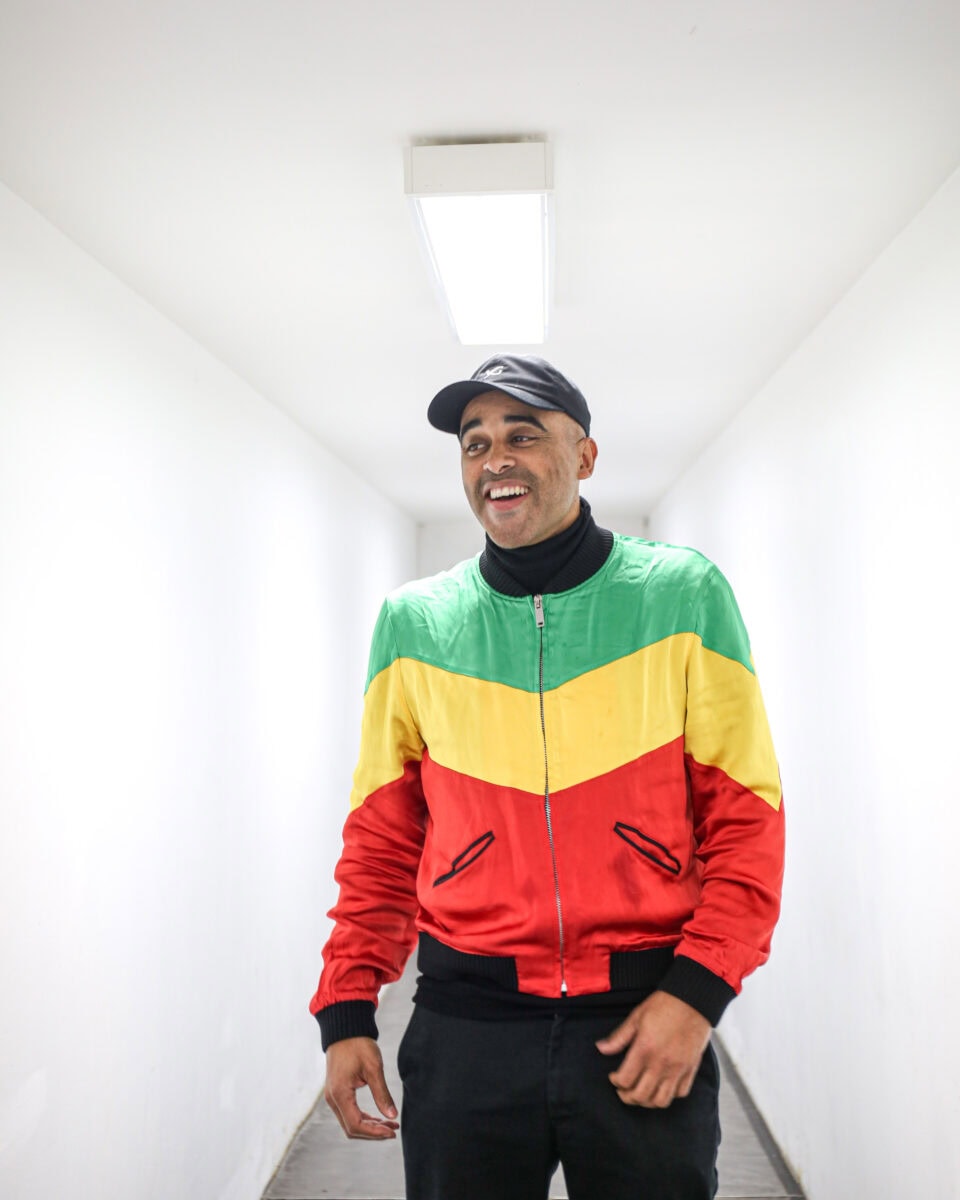
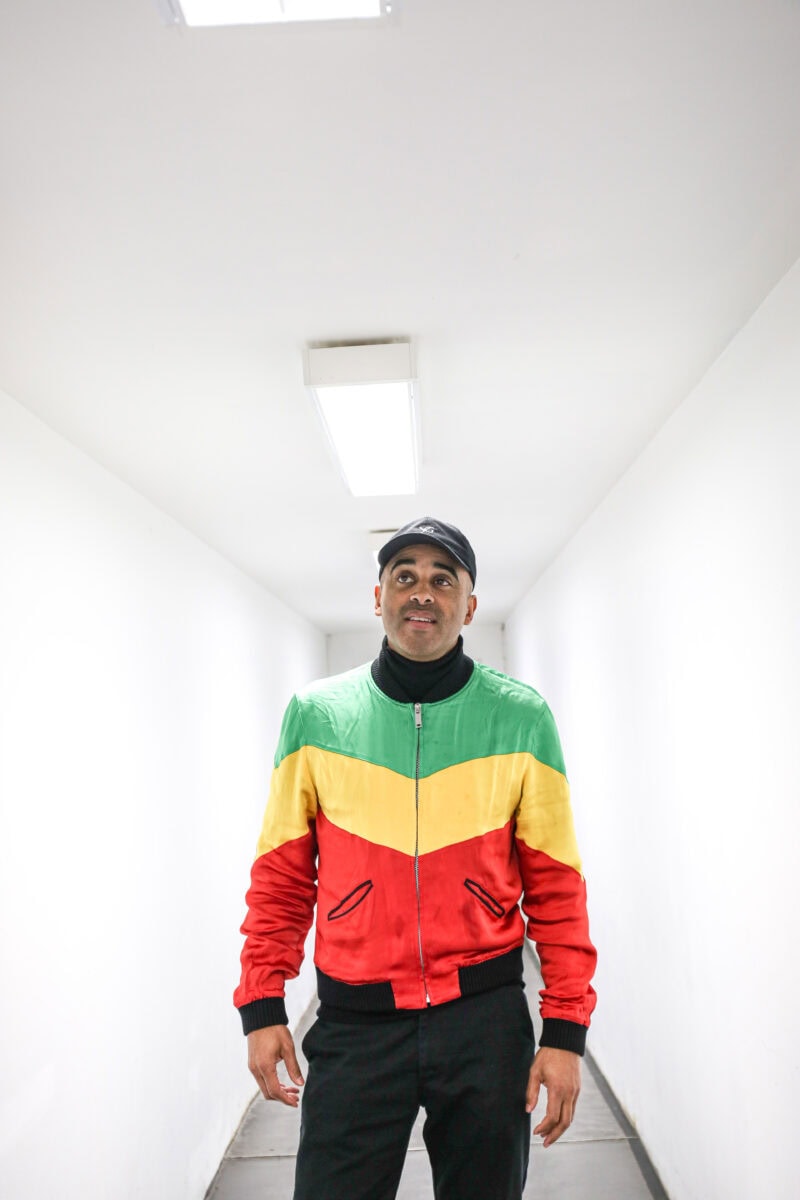
La Face B : Vas-tu faire une tournée pendant la majeure partie de 2024 ou vas-tu terminer cette tournée puis aller en studio ?
Patrice : J’ai préparé tellement de titres avant ce nouvel album. Les chansons que j’ai faites pour ce nouvel album correspondent au concept de l’album 9. Ce sont les plus adaptées. Ce ne sont pas nécessairement les meilleures mais les bonnes. J’ai tellement plus de matériel et j’ai l’intention de sortir des albums chaque année à partir de maintenant.
Donc, je pense que je vais continuer à tourner. Après cette tournée, il y aura un petit creux, donc je terminerai le prochain album. Je travaille aussi beaucoup pour les autres alors j’essaie de tout faire et d’avoir une année très productive. J’ai beaucoup de choses sur ma liste car je dirige aussi un label : nous produisons beaucoup de gens, nous faisons des vidéos, des illustrations. Nous sommes un vrai label indépendant.
La Face B : Tu l’as mentionné plus tôt. Auparavant, Il y avait beaucoup de grandes maisons de disques et puis ça s’est réduit à trois. Mais maintenant, des labels indépendants arrivent de tous les horizons, les artistes (établis aussi bien qu’émergents) frappent à leurs portes parce qu’ils ont plus de libertés et veulent être plus impliqués dans le processus de création.
Patrice : Le grand avantage des labels indépendants est l’agilité. Nous vivons dans une époque très rapide. Tu dois pouvoir aller vite. Si tu as une super idée, cela doit se réaliser maintenant. Avec les labels indépendants, tu peux le faire. Une semaine plus tard, la chanson est en ligne. Avec les majors, il y a parfois tellement de bureaucratie. C’est difficile et pas très fun car l’ambiance générale est la survie et non la vie. C’est à ce stade basé sur la peur.
La Face B : Même pour le streaming, il est difficile pour les artistes de gagner leur vie ou d’obtenir un revenu qui reflète le nombre de streams.
Patrice : Il ne s’agit pas de démocratiser le streaming. C’est juste que toute industrie touchée par un service d’abonnement est à tarif forfaitaire. Si tu vas au buffet à volonté, cela déprécie le contenu, c’est de l’inflation parce que la musique n’a plus la même valeur pour le consommateur. Pour moi, il s’agit de créer des expériences parce que les expériences ont de la valeur. Il faut évaluer correctement la situation et je ne pense pas que les gens le fassent : c’est comme si tu avais une révolution et que tu tranchais les têtes des royaux et des aristocrates et ensuite tu as des aristocrates parmi le peuple qui se camouflent et marchent avec le mouvement. Puis le nouveau gouvernement promet de tout faire différemment. Tout d’abord, les gens ne savent pas ce qui vient après la révolution.
Ensuite, ce qui vient après la revolution, c’est bien souvent la même chose juste sous un autre aspect. C’est ce qui se passe dans la musique. Le streaming est la nouvelle chose mais ils paient les artistes et les labels des miettes et les majors sont des actionnaires majeurs des services de streaming. Ce n’est plus suffisant alors les artistes se battent pour de meilleurs accords, des accords équitables. Une fois que nous les avions, ils les ont jetés par la fenêtre et ont introduit un service de streaming à tarif forfaitaire qui est distribué différemment.
Moi en tant qu’artiste, je fais tout. Nous produisons les tournées, faisons les illustrations, produisons les vidéos, les photos. Nous enregistrons, mixons et produisons tout le contenu et ce n’est qu’alors qu’il est faisable d’être artiste et de faire de la qualité et des projets qui fonctionnent. Pour être honnête, tu entends tous ces discours d’artistes aux Grammy « j’ai travaillé si dur, je suis parti de rien et maintenant je suis ici ». Et c’est comme si tu savais ce qu’est le vrai travail, si tu travaillais dans une mine de charbon, c’est du travail. Être en studio et faire quelque chose que tu aimes, aller dans un endroit où tu es autorisé à faire ça, ça n’est pas comparable.

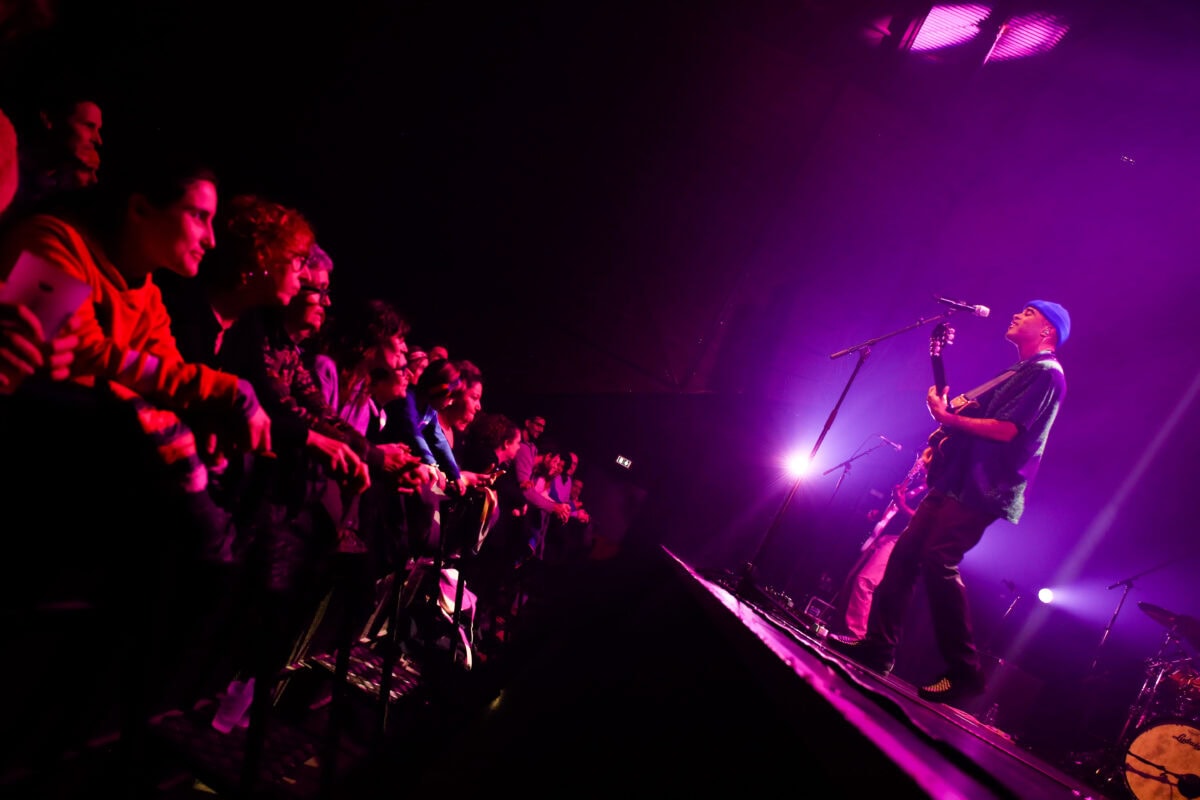
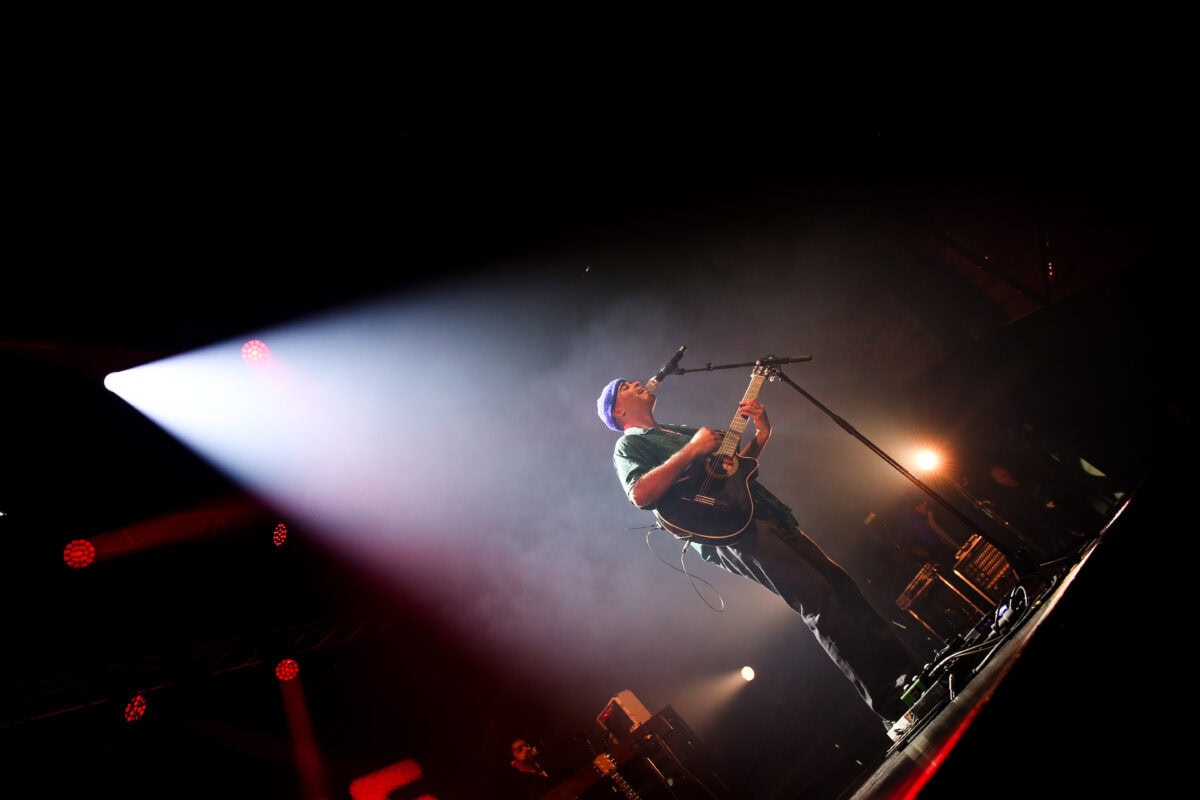
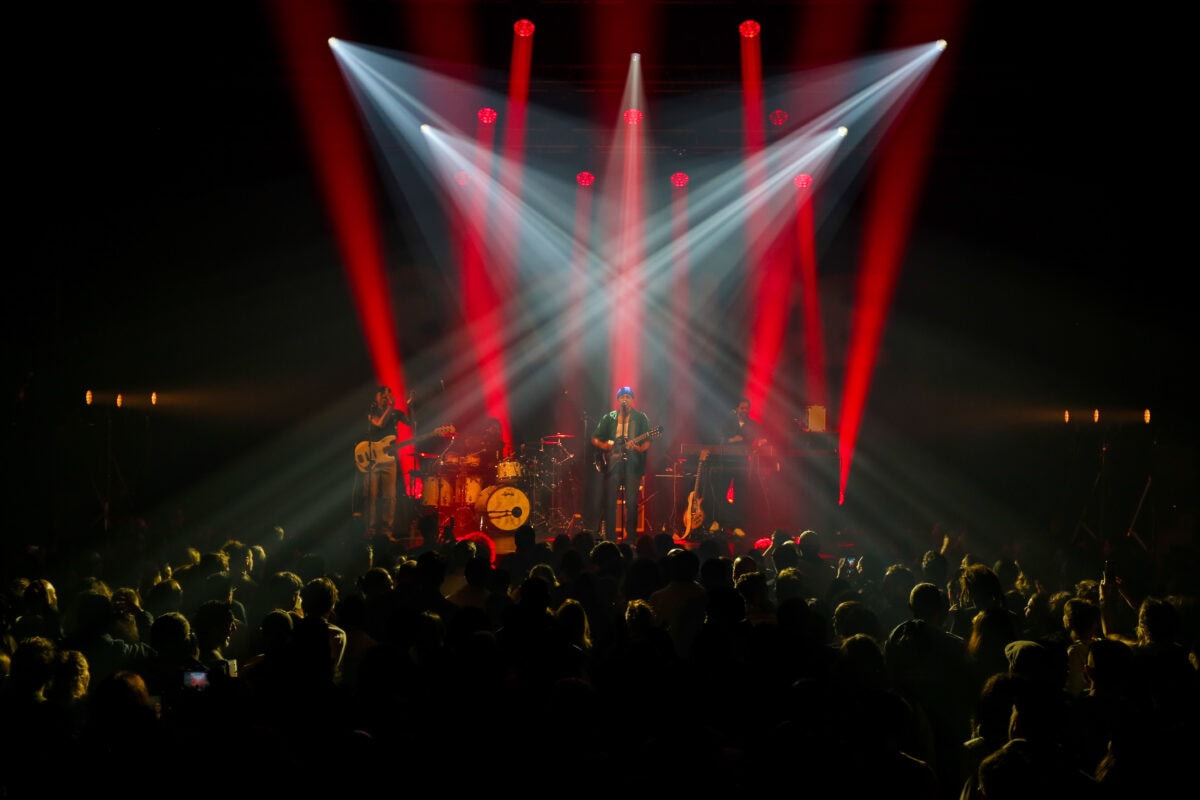
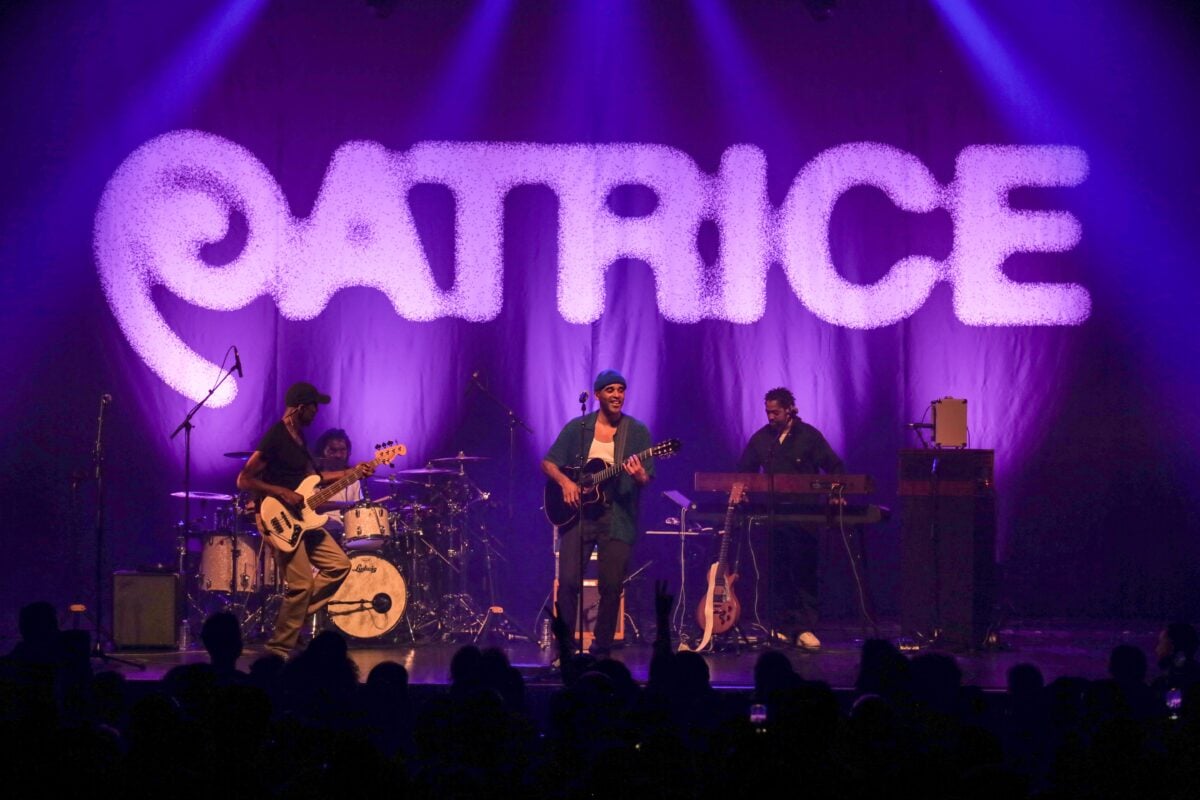
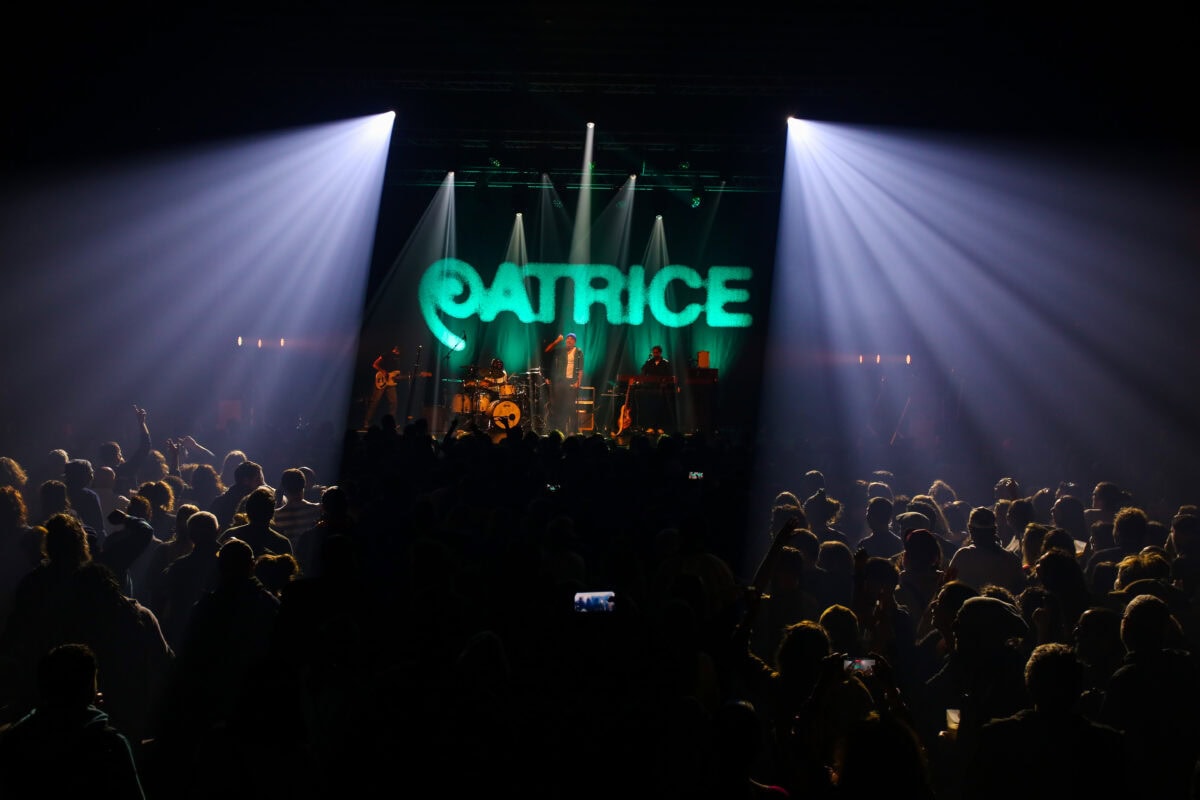
La Face B : Tu produis et écris pour d’autres artistes. As-tu des projets excitants dont tu peux nous parler ?
Patrice : Bien sûr ! En tant que producteur, je travaille avec une artiste allemande Lary et elle est sur le point de sortir de la nouvelle musique.
Nous avons signé Adiam, une chanteuse suédo-éthiopienne qui vit maintenant à Berlin. Elle est très intéressante.
Ensuite, il y a VAR, du collectif Inna De Yard. Je travaille beaucoup sur l’écriture pour les autres.
La Face B : En France, ton es l’inventeur du Sweggae
Patrice : Je ne suis pas l’inventeur. Mais je suis celui qui l’a pris et en a fait quelque chose.
La Face B : Est-ce toujours toi ? Ou as-tu évolué?
Patrice : J’essayais de faire mon propre truc et de ne pas imiter le reggae jamaïcain mais aussi d’apporter des influences européennes et des choses qui me passionnent et de créer une nouvelle culture qui me reflète moi et les gens comme moi et les gens qui ont les mêmes passions en eux. Faute de mieux, je l’ai appelé Sweggae. La philosophie de cela est toujours ma philosophie : j’essaie vraiment de tracer mon propre chemin. Je suis définitivement toujours sur la même chose. Le Sweggae est toujours plus une approche.
J’ai des chansons comme « Soulstorm » qui sont clairement des chansons Sweggae. Elles ont un rebond Ska clair mélangé avec des influences européennes. J’espère que j’évolue. La première chanson de mon nouvel album s’appelle « Become who you are » et cela résume tout pour moi. L’évolution consiste à essayer de devenir qui tu es à tout moment. Ce n’est pas quelque chose que tu peux définir, ce n’est pas un nom, c’est un processus. Et un processus qui ne finit jamais.
La Face B : Le toi de maintenant ne sera pas le même dans dix ans. Nos passions, motivations et aspirations évoluent toujours.
Patrice : D’une certaine manière, tu es le même mais peut-être en esprit. Ton âme, mais ton corps se renouvelle entièrement tous les sept ans. Devenir qui nous sommes, c’est une renaissance constante. C’était le thème de « Ancient Spirit ».
C’est la renaissance : je suis né le même jour que mon grand-père est mort, donc l’idée que la vie continue et ne s’arrête jamais.
La Face B : Penses-tu que les mêmes choses t’animent quand tu écris ? Les mêmes sujets ou tu explores de nouvelles choses ?
Patrice : J’écris avec un élan de conscience. J’ai un concept, mais on dit parfois qu’il faut tuer ses chéris, même si tu les aimes, ils ne servent pas l’histoire. Parfois, c’est juste bon de jeter la peinture sur le mur, de voir quelque chose et de créer la peinture à partir de cela. Parfois, je fredonne juste une mélodie, ça passe à travers moi et j’identifie les mots ensuite, puis je leur donne un sens.
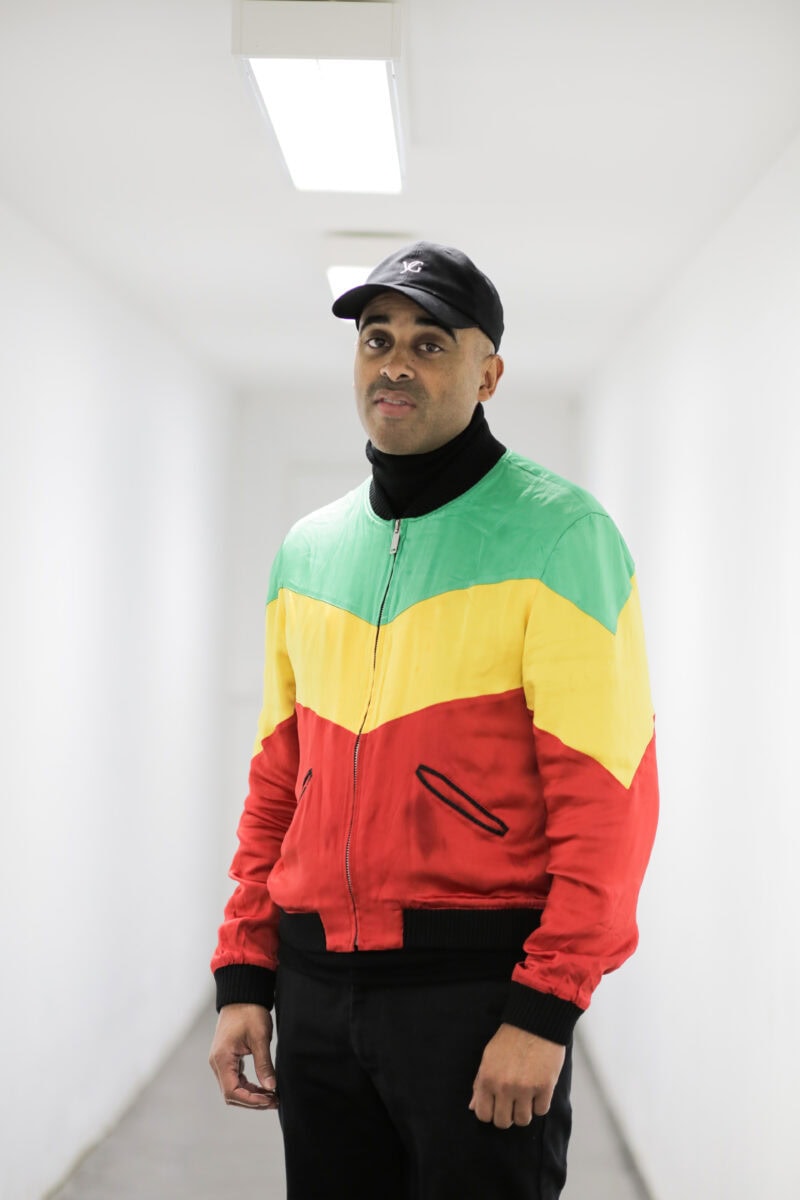
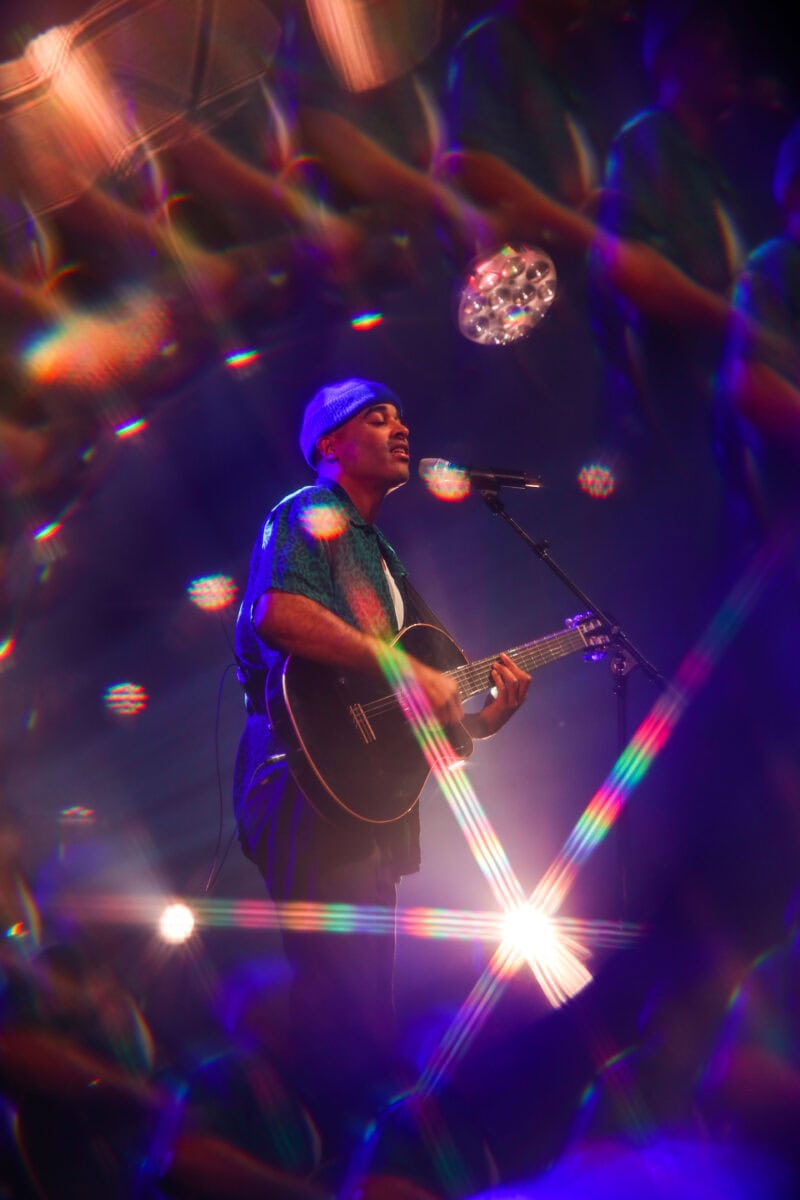
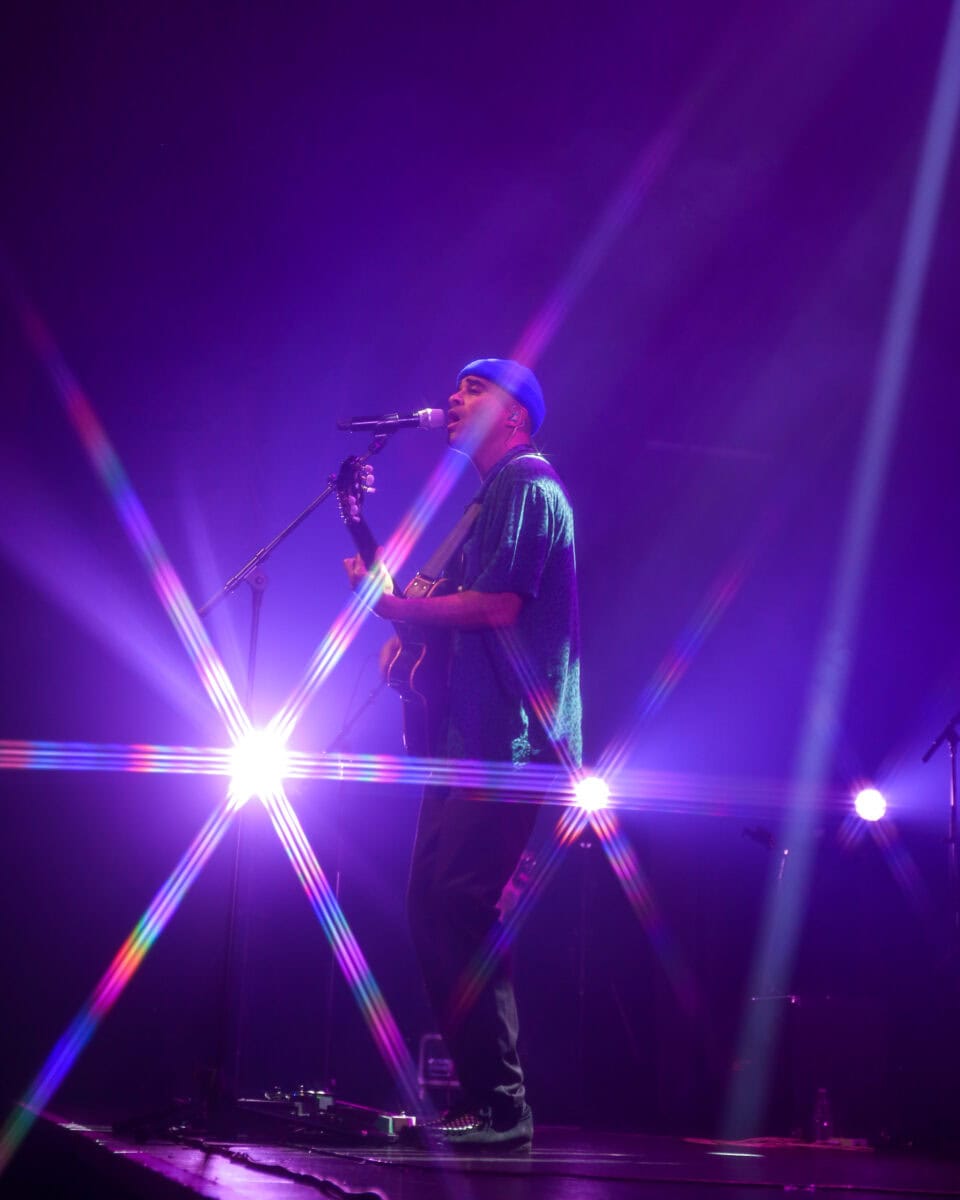
La Face B : Donc tu commences par la mélodie et ensuite les mots. D’autres artistes comme La Chica ou Gaz Coombes font différemment. J’adore savoir et parler de ce processus avec les artistes.
Patrice : C’est vraiment une question de processus.
La Face B : Je n’ai jamais écrit de chanson mais je trouve ce processus fascinant à comprendre.
Patrice : Pour moi, c’est se mettre dans l’état d’esprit initial. Par exemple, si j’ai souvent fait une chose, je ferai autre chose juste parce que je ne l’ai pas fait. Tu me proposerais une approche, je l’essaierais. Parce que faire la même approche ferait ressortir quelque chose de nouveau en moi. Ce serait intéressant et une expérience cool, et c’est comme ça que j’aime l’aborder et parfois briser la façon dont je fais les choses et le faire différemment. Je n’écris pas d’une seule façon, tu sais ?
Le processus fait partie de l’écriture. Mais je pense qu’en général, c’est la meilleure partie, l’écriture et la jouer en live. Le processus créatif au tout début, quand tu ne te questionnes pas, quand tu le fais juste, tu ne sais pas si c’est bon ou mauvais. À ce moment-là, j’adore le faire. Le plus important pour moi est d’atteindre cet état d’esprit, j’ai une perspective ou au moins quelque chose que je sens pertinent et à partir de cet état d’esprit, tu peux écrire des milliers de chansons. Atteindre cet état d’esprit peut prendre des années, mais parfois tu y es catapulté, par exemple, quand tu tombes follement amoureux ou quand quelque chose te touche tellement que cela t’y amène.
La Face B : Où vis-tu ces jours-ci ?
Patrice : J’ai un endroit en Jamaïque. Ensuite, Berlin, Paris et Cologne.
La Face B : Tu vis entre l’Europe et la Jamaïque.
Patrice : J’ai échangé New York pour Kingston.
La Face B : Penses-tu que Kingston est ton lieu sûr ?
Patrice : Oui, j’y vais à la fois pour vivre et travailler. C’est mon propre lieu sûr et c’est pourquoi j’aime ça. Je ne peux pas exister dans un endroit trop sûr. Sinon, ce serait ennuyeux. J’ai besoin du frisson de ne pas être trop en sécurité, mais quand je produis, mon travail est de créer un espace sûr pour les artistes.
La Face B : Je trouve cela intéressant car c’est la dualité de ton influence musicale et le ton de ta voix, mais aussi ton identité.
Patrice : Je suis un peu une nouvelle personne. Mes parents se sont rencontrés dans un avion, en plein vol. Il y a des gens qui disent que l’enfant naît quand l’idée est née. Une fois cette première étincelle arrivée. Selon cette philosophie, je suis peut-être né dans le ciel, quelque part entre deux endroits. Les gens me demandent souvent où je me sens chez moi. J’aime bouger et je me sens chez moi dans le mouvement.
J’ai découvert la musique à un niveau plus profond grâce à Bob Marley. La raison pour laquelle ma voix sonne comme ça, c’est parce que j’aimais tellement Bob Marley quand j’étais très jeune. J’avais vraiment cette connexion profonde et je pouvais chanter toutes les chansons, les nuances et il me disait littéralement comment chanter sans que je pense que je chanterais un jour. C’est juste moi chantant là où je me sentais le plus naturel. Quand j’ai commencé à faire ma propre musique, ce n’était même pas intentionnel. La façon dont c’est sorti, le timbre, le ton, c’était parce que tu deviens ce que tu aimes.
La Face B : Ton intonation ! Ta voix parlée n’a pas vraiment d’accent allemand et quand tu chantes, tu as un accent jamaïcain très marqué. Ton rythme, ton intonation, vraiment.
Patrice : Cela vient clairement de cette culture reggae. Mais si tu écoutes « Sunshine », tu ne trouveras pas cela mais tu trouveras toujours le ton. Il y a les deux : tu as parfois des chansons très britanniques, parfois des chansons très jamaïcaines, parfois des influences très africaines.
La Face B : C’est génial parce que c’est tout toi. Tu es européen avec un héritage ouest-africain et une connexion profonde avec la Jamaïque. C’est tout toi.
Patrice : Et c’est vers ça que nous allons en tant qu’humanité. Un jour, nous nous définirons par le contenu de ce que nous aimons. Tu aimes quelque chose tellement que tu développes une connexion profonde qui te comble.
La Face B : J’ai travaillé avec ce groupe Nova Twins. C’est un duo de punk et heavy metal et au début, les gens leur demandaient pourquoi ils avaient opté pour ce genre et pas le hip-hop. Mais c’est comme ça qu’ils s’expriment et leur musique. Elles ont des percussions sur leurs chansons qui mélangent heavy metal et hip-hop, mais cela fait partie de leur projet musical.
Patrice : Absolument, et très souvent, c’est naturel de se battre pour sortir de la boîte dans laquelle les gens essaient de te mettre. C’est une bonne réaction : tu me vois et tu penses que je suis ça mais non. Je défie ta façon de voir les choses. C’est important.
La Face B : Merci beaucoup pour ton temps, ta générosité et le thé !
De plus, suivez Patrice en live ou sur Instagram
Toujours plus d’interviews et de photos de concerts dans La Face B
Enfin, retrouvez les articles d‘Alexia Arrizabalaga-Burns dans La Face B
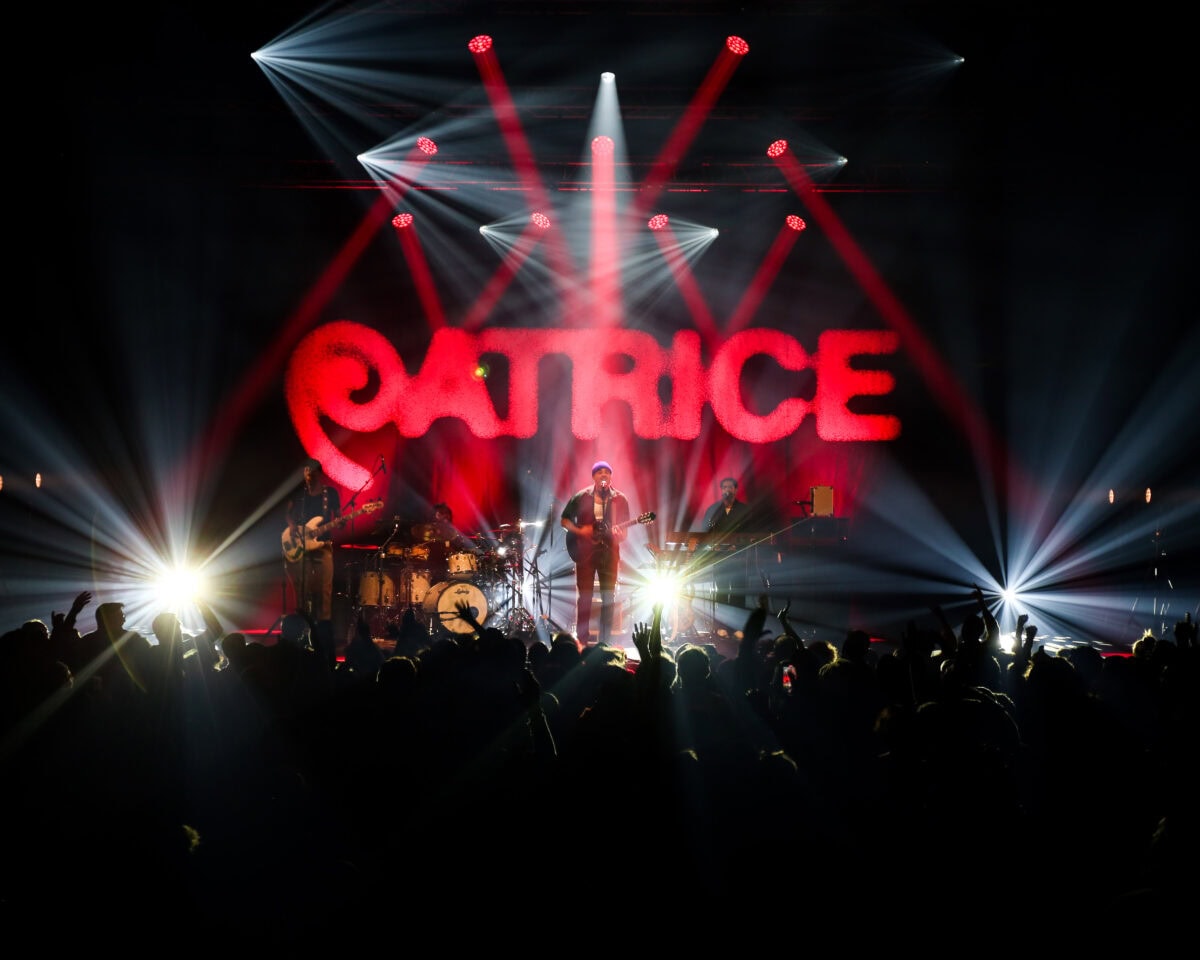
Version en Anglais
La Face B: Hello Patrice, ou are at the beginning of your French Tour: You have 8 days going to Bordeaux, Bayonne, Toulouse, Limoges. Is it fair to say you have a special relationship with France?
Patrice: Yes absolutely. I have done 3 tours last year. I am number 5 in most touring artist in France apparently. Someone sent me the screenshot, I did not know.
La Face B: This is proof.
Patrice: Yes and this year we continued! When I started music, I was still at school. I was in a boarding school and I put out a promotional record which was not meant to even sell, It was just to say “Hey I exist” so we could maybe organize some concerts and we had something to show people. Somehow with “bouche an Oreille” in France, It just went viral in an instant and the song Lions became like a sensation. Whenever I was on vacation, or when I did TV in France, Interviews for the Inrockuptibles, I was quite young and It was a big deal. All the labels started calling in and wanted to do It and basically everything that happens today or happened after was built on that first love and we kind of grew together.
La Face B: It is cool and It sounds like you have a loyal audience, loyal fans. Families come together to your concerts.
Patrice: Yeah! It is a blessing.
La Face B: You are doing your tour using electric cars. It is quite an environment statement. How is It?
Patrice: We are still touring using two electric cars and a trailer. And We have quite a bit of material, so we optimized. It was a bus and a trailer at first and then we had a motorbike trailer. The aerodynamics are more important than the weight. That is going pretty well. Tey call it the Patmobile.
La Face B and Patrice: Laughs….
Patrice : They call it like that in France. That’s how we tour now. This is not just for the environment you know? We are doing it just to be progressive. Progress means to make things better, more efficient and less impact on the environment. It is not only one aspect, but the whole thing. It is like an electric roadtrip in France and we are quite close as a band. The routing has to allow for it and you have to plan ahead so concerts are not further than 200 kilometres to 400 kilometres apart.
La Face B: You should be fine with your route, you are on the 200 kilometres bracket.
Patrice: As long as that is the case, it is very doable. And If we have a longer way to go, we put a day off in between. It is going quite well and we are very independent this way, which I like.
La Face B: You came from Berlin this morning.
Patrice: I flew from Berlin to Paris. Then I got a train from Paris to Bordeaux. I don’t fly much. Especially short flights but this one was not possible. If we can, we take trains.
La Face B: Are you going on tour most of 2024 or are you finishing this tour and then you go to the studio?
Patrice: I did so many new albums preparing for this new album. The songs I made on this new album fit the concept of this album. They are the most suited for it. They not necessarily the best but the right ones. I have so much more material and I am intending to drop albums yearly at this point. So, I think I will keep touring and after the tour, there is a bit of a gap, I will finish up the next album. I also work a lot for others so I am trying to do it all and have a very productive year. There is a lot on my list as I also run a label: we produce many people, we do videos, artwork. We are a true independent label.
La Face B: You mentioned it earlier. There were many major labels and then it turned down to three. But now independent labels are making a come back, artists are knocking on their doors because they have more freedoms and want to be more involved.
Patrice: The big advantage of independent labels is agility. We live in very fast times. You have to be able to fast. If you have a great idea, this needs to happen now. Within independent labels, you can do it. A week later, the song is live. With majors, there is so much bureaucracy sometimes. It is difficult and not very fun at times because the overall mood is survival and not life. It is fear-driven at this point.
La Face B: Even for streaming, it is difficult for artists to make a living or get an income that reflects the number of streams.
Patrice: It is not about democratizing streaming. It is just any industry that was hit by a subscription service is at flat rate. If you go to the all you can eat buffet, It depreciates the content, it is inflation because music does not have the same value to the consumer anymore. To me, It is about creating experiences because experiences have value. You have to assess the situation correctly and I don’t think people are doing that: It is like you have a revolution and you chop the heads of the royals and the aristocrats and then you have aristocrats amongst the people and they camouflage and march with the movement. Then the new government promises to do everything differently.
First of all, people don’t know what’s after the revolution. Then whatever comes after, sometimes it is the same thing just different looks but the same thing. This is what is happening in music. Streaming is the new thing but they pay people and labels pennies and major labels who are major shareholders in streaming services. It is not enough to go around anymore so artists fight for better deals, deals that are fair. Once we had them, they threw it through the roof and introduced a streaming service with a flat rate and it is distributed differently.
Me as an artist, I do it all. We produce the tours, make the artwork, produce the videos, pictures. We record and mix and product all the content and only then it is feasible to be an artist and do all things with quality and make it work. To be honest, you can hear all these artists speeches at the Grammy “ worked so hard, came from the bottom and now I am here. And It’s like If you know like real work, if you used to be in coal mine, that’s work. Being in the studio and doing something that you love, going to a place where you are allowed to do that, It is not comparing.
La Face B: You produce and write for other artists. Any exciting projects you can talk to us about?
Patrice: For sure! As a producer, I work with a German artist called Lary and she is just about to put new music. We signed Adiam, a Swedish-Ethiopian singer who lives in Berlin now. She is very interesting. Then there is Var, from Inna De Yard collective. I work a lot on writing for others.
La Face B: In France, I read a lot of articles and they call you the Inventor of the Sweggae. Are you aware of it?
Patrice: I am not the inventor. But I am the one who took it make it into something.
La Face B: Is it still you? Or are you evolving?
Patrice: I was trying to do my own thing and not emulate Jamaican reggae but also bring European influences and things I am passionate about and kind of create a new culture that reflects me and people like me and people that have the same loves within them. For the lack of a better word, I called it Sweggae.
The philosophy of that is still my philosophy: I am really trying to carve out my own path. Definitely still on that same thing. Sweggae is still more an approach. I have songs like SoulStorm that are clear sweggae songs. They have a clear Ska bounce mixed with European influences. I hope I am am evolving. The first song of my new album is called “ Become who you are” and that sums it up for me. The evolution is trying to become who you are at all times. It is not something you can define, it is not a noun it is a process. And a process that is never ending.
La Face B: The you now is not going to be the same in ten years. Our passions, motivations, aspirations are always evolving .
Patrice: In a way you are the same but in spirit maybe. Your soul but your body renews itself entirely every seven years. Becoming who we are is about a constant rebirth.It was the theme of Ancient Spirit. It is rebirth: me being born the same day my grandfather died so the idea life keeps going and never ends.
La Face B: Do you think the same things animate you when you write? Same topics or you are exploring new things.
Patrice: I am very much a writer who writes from scream of consciousness. I have a concept but we say sometimes you have to kill your darlings, although you love them, they don’t serve the story. Sometimes, it is just good to throw the paint on the wall and see something and create the painting from that. Sometimes, I just hum a melody, it goes through me and I identify the words afterwards and then I give it a sense.
La Face B: So you start with the melody and then the words. Other artists like La Chica or Gaz Coombes do it differently. I love knowing and talking about that process with artists.
Patrice: It is very much about the process really
La Face B: I never wrote a song but I find that process fascinating to understand.
Patrice: For me, It is putting yourself in the beginning mindset. Like for example, If I have done one thing often, I would do something else just because I have not done it. You would tell me an approach so I would try it. Because me doing this same approach would bring something new out of me. It would be interesting and a cool experiment an that’s how I like to approach it and break sometimes the way I do things and do it differently. I don’t write just one way you know? The process is part of the writing.
But I think overall that is the best part, the writing and the playing it live. The creative process at the very beginning when you don’t question yourself , when you just do it, you don’t know If it is good or bad. At that point, I love doing it. The most important for me is to get to that state of mind, I have a perspective or at least something I feel is relevant and from that state of mind, you can write thousands of songs. Getting to that sate of mind can take years but sometimes you get catapulted to it when for example you fall crazily in love or being so moved by something that it just brings you there.
La Face B: Where do you live these days?
Patrice: I have a place in Jamaica. Then Berlin, Paris and Cologne.
La Face B: You live between Europe and Jamaica.
Patrice: I swapped New York for Kingston.
La Face B: Do you think Kingston is your safe place?
Patrice: Yes I go there both to live and work. It is my own safe place and this is why I like it. I can’t exist in a place that is too safe. Cause it would get boring. I need the thrill of not being too safe but when I produce, my job is to create a safe space for artists.
La Face B: I find it interesting because it is the duality of your music influence and the tone of your voice but also your identity.
Patrice: I am kind of a new person. My parents met on an airplane, in the air. They are people who say the child is born when the idea is birthed. Once that first spark happened. By that philosophy, I might be born in the sky somewhere between places. People often ask me where I feel at home. I like to move and I feel at home in movement.
I discovered music at a deeper level through Bob Marley. The reason my voice sounds like that is because I love Bob Marley so much as a very young kid. I really had this deep connection and I could sing all the songs, the nuances and he would literally tell me how to sing without me thinking I would sing one day. It is just me singing along where I felt more natural. When I started making my own music, It was not even intentional. The way it came out, the timber, the tone, It was because you become what you love.
La Face B: Your intonation! Your speaking voice does not sound German and when you sing you have a very strong Jamaican accent. Your pace, your rhythm and intonation really.
Patrice: That is clearly from that reggae culture. But if you listen to Sunshine, you won’t find that but you will still find the tone. There is both: you have very British songs sometimes, sometimes very Jamaican songs, sometimes very African influences.
La Face B: It is great because it is all you. You are European with Western African heritage and a deep connection with Jamaica. That is all you.
Patrice: And that’s where we are heading as humanity. One day we will define ourselves by the content of what we love. You love something that much that you develop a deep connection that fulfills you.
La Face B: I worked with this Band Nova Twin. They are a punk, heavy metal duo and at the beginning people were asking them why they opted for this genre and not hip hop. But that’s how they express themselves and their music. They have drums on their songs mixing heavy metal and hip hop but it is part of their music project.
Patrice: Absolutely, And very often, it is natural to fight ourselves out of the box people try to lock you into. It is a good reaction: you see me and you think I am that but no. I am challenging the way you see things. It is important.
La Face B: Thank you very much for your time, your generosity and the tea!
